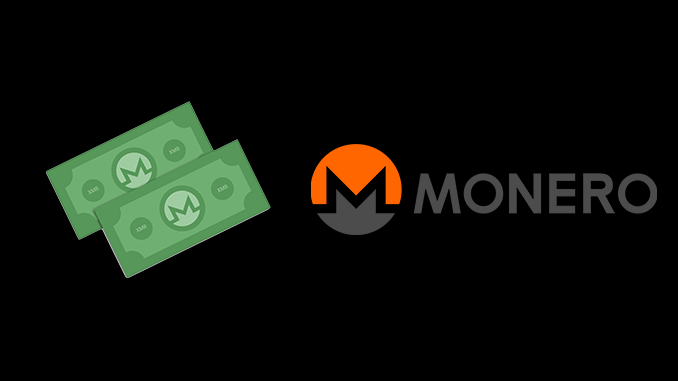
Monero (XMR) is the world’s best-known privacy coin. With an upgrade, Monero has now further strengthened its core areas of security and privacy. But what are the future prospects for XMR?
The Privacy Coins division is controversial in the crypto industry. Proponents see examples like Monero (XMR) as a kind of last line of defense for private finance. Critics decry privacy coins as perfect cryptocurrencies for criminals, who are said to have found a tool with them for everything from tax evasion to terrorist financing. Monero is the most prominent representative for privacy coins, currently ranking among the 30 most capitalized altcoins, with around $3 billion in capital gathering behind XMR. Now, Monero has rolled out a major technological upgrade over the weekend and is happy about the content progress via Twitter.
For example, signatures on Monero now always ask for 16 digits (previously only 11 in some cases), making hacks much more difficult. To protect the privacy area even better, Monero has listened to Bulletproof+, already the original Bulletproof at XMR from 2018 had received much praise. With the “View Tags” module, Monero has now also greatly reduced the time needed when wallets sync with XMR. However, the big upgrade could not positively influence the price curve of Monero, XMR is quoted quite sluggishly at 170 US dollars.
Recent events in the crypto industry and the history of XMR are cited as one reason for lack of optimism among investors in Monero. In the US, the tool Tornado Cash (a kind of Bitcoin mixer) was sanctioned, and in the Netherlands, a programmer of Tornado Cash was arrested. This showed that law enforcement agencies are pursuing the issue of privacy and crypto more strictly than before – even though it is of course questionable whether simple code can already constitute a crime. Monero itself, on the other hand, made negative headlines back in 2021 due to the arrest of a leading team member, and spooked this year due to unhealthy distribution of miner pools.
But perhaps an entirely different fact is the real obstacle to Monero’s growth: individual crypto exchanges like Bittrex have been delisting XRM for some time, at Coinbase Monero is a no-no, and at FTX XMR is only tradable as futures. Coinbase CEO Brian Armstrong once said authorities have made it very clear “behind the scenes” that crypto platforms should stay away from Monero if they don’t want to risk huge trouble. As a result, however, this also means XMR will not be represented on many leading marketplaces at all.
Conclusion: Monero – technologically well positioned, but branded as a privacy coin
Those who handle Monero carefully get a very different level of privacy delivered than with mainstream cryptocurrencies, and the recent upgrade has strengthened this position. Among the 50 most capitalized cryptocurrencies, ZCash (ZEC) is at best competitive in this discipline. But the overarching theme of privacy coins has fallen into disrepute in many places, which is severely hampering expansion. Thus, forecasts on the price development of XMR remain difficult terrain, because Monero cannot hope for concessions from state authorities.

Leave a Reply